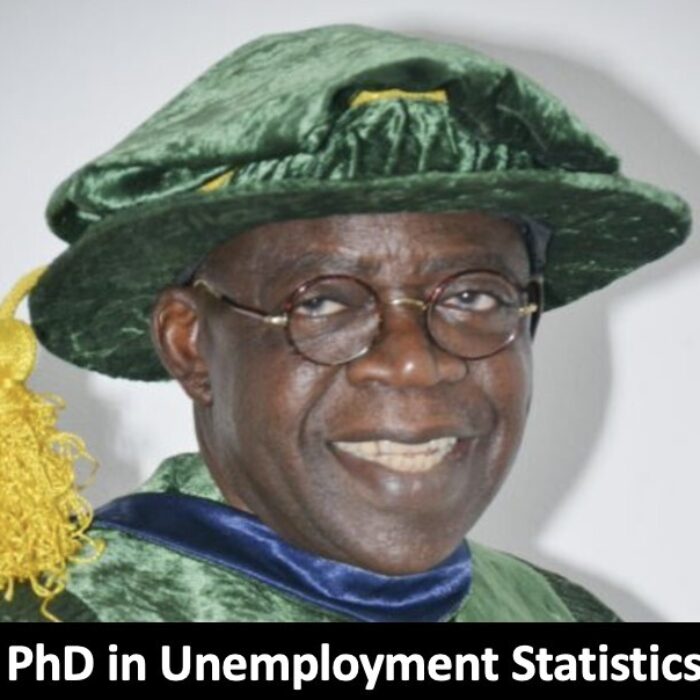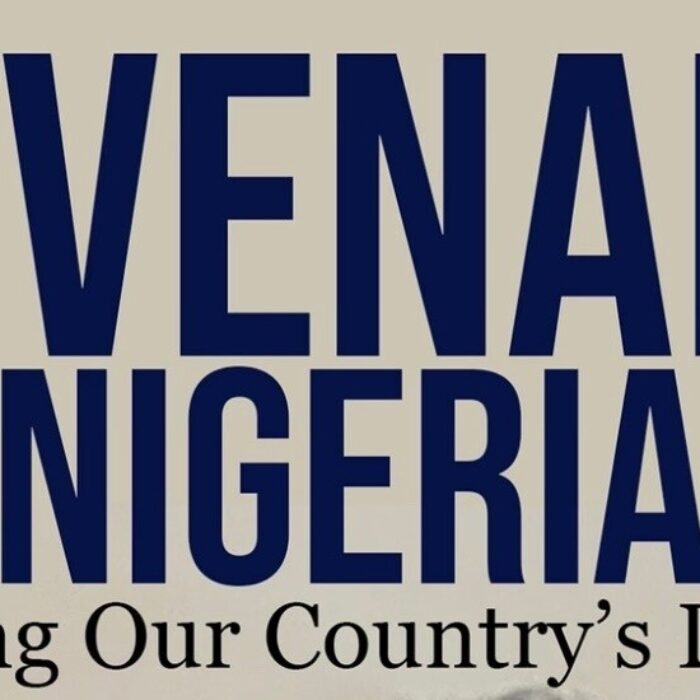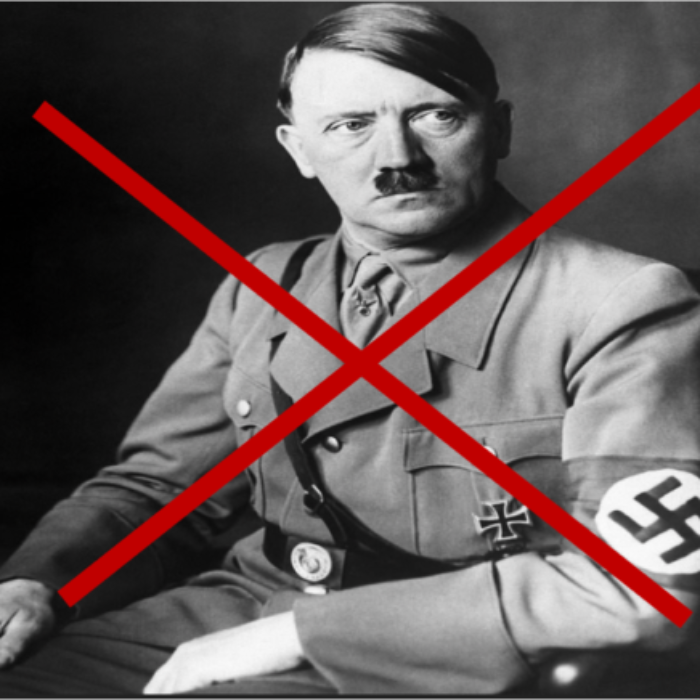By The Editorial Board
Under the Tinubu administration, Nigeria has descended into a living nightmare—a hellscape of unimaginable terror, suffering, and despair. The nation is being torn apart by the relentless forces of poverty, hunger, disease, homelessness, insecurity, and death.
Far from merely stagnating, the Nigerian economy has collapsed into full-blown crisis under Tinubu’s misrule, with every policy deepening the country’s misery and devastation.
At the heart of this national crisis is a new form of warfare—economic terrorism—a lethal force unleashed by President Tinubu with ruthless precision.
Economic terrorism generally refers to the use of harmful economic policies to destabilize a nation, create widespread fear, cripple industries, and inflict mass suffering, including starvation and death. Such policies deepen poverty, erode hope, and create uncertainty and long-term societal harm.
Through reckless and harmful decisions, Tinubu has weaponized the economy against the very citizens he swore to protect. He has turned it into a tool of mass destruction. His policies have unleashed widespread hardship, driving millions into starvation and worsening the nation’s economic and social foundations.
This economic onslaught has ravaged every corner of the nation. From Aba to Zaria, Lagos to Sokoto, Jos to Jalingo, and Uyo to Kano, despair and hopelessness fill the streets. These are the cruel results of policies that have crushed the vulnerable and extinguished the last remnants of hope among the poor.
The once-vibrant markets and communities now stand in disarray, all collateral damage of a leader whose heart is hardened to the suffering of his people. Instead of guiding the nation to recovery, he has steered it deeper into the abyss, leaving millions to bear the brunt of his callous decisions.
Religio-political terrorist groups use violent tactics, such as AK-47s, hand grenades, and improvised explosives, to spread fear and cause destruction. These brutal methods have not only claimed countless lives but also torn apart communities, with the goal of destabilizing the nation through chaos and destruction.
In contrast, President Tinubu’s approach has centered on executive orders and policy decisions that, while not physically violent, have had equally devastating consequences for the nation’s economic and social development. The ripple effects of these policies have undermined economic stability and weakened social cohesion, leaving lasting damage across the country.
His relentless pursuit of misguided and superficial short-term fixes, designed to appease a select few, including the World Bank and international creditors, has shattered the economic foundations of millions, leaving a trail of destruction in its wake. The casualties may not fall from bullets, bombs and grenades, but they are just as real, with entire communities left destitute and hopeless.
Sadly, Tinubu’s economic policies have proven as lethal as the brutal efficiency of terrorists in killing Nigerians and condemning millions to economic ruin, unbearable human suffering, and untimely death.
Before Tinubu took office, Nigeria’s GDP per capita (Current US$) in 2022 stood at $2,163, according to the World Bank. By the end of 2023, this figure had dropped to $1,621, and my projections for 2024 suggest a further decline to $1,110. This represents a staggering 50% drop in GDP per capita under Tinubu’s leadership, reflecting the devastating impact of his policies on the nation’s economy.
Furthermore, Tinubu’s reckless borrowing has worsened Nigeria’s already unsustainable debt burden. According to Afreximbank as reported by BusinessDay, Nigeria’s debt service-to-revenue ratio is expected to reach an alarming 110.4% in 2024.
This means the country will spend more than its entire revenue on repaying debt, forcing it to borrow even more just to meet existing debt obligations—a situation disturbingly similar to a Ponzi scheme.
His rash removal of fuel subsidies without adequate risk management and the chaotic devaluation of the Naira have rapidly eroded the purchasing power of ordinary citizens, driving prices higher and crushing businesses reliant on fuel and imports.
Sky-high unemployment rates have become the new normal, leaving millions of Nigerians without jobs or any prospects for the future.
This relentless assault on Nigerians has plunged the economy into a catastrophic doom loop, where each misguided policy triggers another, compounding the destruction like a chain reaction from detonating cluster bombs.
The calculated devastation has left a path of shattered dreams and ruined lives across the nation, with every policy failure deepening the economic collapse and fueling widespread hopelessness. The resulting damage is not just economic; it is the dismantling of livelihoods and the undermining of the nation’s future.
Worse still, Tinubu and his administration show a fundamental lack of understanding of economic growth. They fail to recognize that improving the purchasing power of ordinary Nigerians and boosting the nation’s wealth hinges on enhancing economic output—driven by higher productivity, technological innovation, and an expanded labor force.
Unfortunately, Tinubu has failed to recognize that sustainable economic growth cannot be achieved by misusing borrowed funds to service old debt instead of investing in productive sectors. His administration continues to waste resources on a bloated and corrupt federal bureaucracy, an inefficient and costly National Assembly, and poorly conceived projects that bring little to no economic value.
Instead of investing in meaningful reforms, his administration indulges in frivolous consumption and implements ineffective palliatives that do little to address the root causes of the country’s economic woes.
These short-sighted measures only deepen Nigeria’s fiscal instability, exacerbating the suffering of our citizens while diverting attention away from the long-term solutions needed to revive the economy.
By slavishly implementing draconian policies mandated by the World Bank and international creditors, the administration has recklessly surrendered the nation’s sovereignty, condemning our citizens to a life of poverty, inequality, and desperation.
Although experts agree that Tinubu’s economic policies have caused far more devastating impacts than non-state terrorist groups in Nigeria, the global response has been starkly different. While the world quickly rallied to support Nigeria in its fight against Boko Haram and other insurgents, there has been a deafening silence regarding the destructive consequences of Tinubu’s governance.
The international community remains passive in the face of policies that are crippling the nation’s economy and inflicting widespread suffering.
The US pledged hundreds of millions in military equipment and intelligence to fight Boko Haram and ISWAP. Where is the West’s outrage against Tinubu’s economic terrorism? Not surprisingly, it’s eerily quiet on the Western front.
A destabilized Nigeria serves their interests—fostering dependency, keeping a key regional player in economic disarray, and ensuring foreign powers can continue to exploit resources and influence.
While they are quick to condemn visible violence, they remain complicit when economic policies wreak destruction under the guise of governance, silently watching as millions suffer from the fallout of Tinubu’s disastrous decisions.
As if the West’s economic exploitation of Tinubu’s weaknesses is not in itself enough to destabilize Nigeria, he has now extended his borrowing hand to China, where he was welcomed with open arms, fully aware that China’s interests lie in deepening Nigeria’s economic dependence.
The devastating consequences of Tinubu’s rein of economic terrorism will reverberate for generations, with the next generation bearing the crushing burden of debt and repayment, stifling their potential and robbing them of a prosperous future. The economic and social wreckage is unparalleled, touching every corner of the country.
As a result, Nigerians are left struggling to survive in a crippled economy, held hostage by the very leaders meant to protect and serve them, who have instead become economic terrorists. Millions of young Nigerians are confronted with the brutal reality of poverty and starvation, their potential wasted, their futures hanging in the balance.
The only beneficiaries are the president’s family businesses, his elite cronies, and foreign predatory creditors, who prosper while the rest of the nation endures hardship.
It is, therefore, no surprise that as the grip of economic terrorism tightens, the fabric of Nigerian society is beginning to unravel. Social unrest, once simmering beneath the surface, has erupted into public protests and chaos, with even more devastating uprisings looming on the horizon.
In the North, political instability is now a looming threat, with the nation teetering on the edge of chaos. Regional and tribal grievances are boiling over, and tensions between the Northern elites and the Tinubu administration are escalating to dangerous levels. In the Southeast, the silence of the Igbo grows ever more ominous.
The persistent failure to adapt and correct course signals a troubling disregard for the long-term consequences of his actions, leaving the economy and the people to suffer under the weight of his reckless incompetence and blatant mismanagement.
History Points to Where Nigeria is Headed
History shows the devastating consequences of economic mismanagement by governments. In China, Mao Zedong’s Great Leap Forward caused widespread famine, resulting in an estimated 20-45 million deaths.
Cambodia under Pol Pot’s Khmer Rouge suffered from forced labor camps, executions, and economic collapse, leading to 1.7-2.2 million deaths. Robert Mugabe’s rule in Zimbabwe brought hyperinflation, food shortages, and widespread poverty, causing millions to starve.
In Venezuela, the socialist policies of Hugo Chávez and Nicolás Maduro led to economic ruin, hyperinflation, and severe shortages, plunging millions into poverty.
These examples show how corruption and poor governance can destroy nations. If Tinubu does not change course, Nigeria could face similar ruin.
How to Fight and Defeat Tinubu’s Economic Terrorism
To fight and defeat Tinubu’s economic terrorism, a multi-pronged strategy is essential, focusing on both grassroots efforts and systemic reforms.
- Public Awareness: Educating Nigerians on how specific policies are driving inflation, unemployment, and economic hardship is crucial. This can be achieved through traditional and social media, as well as community-based campaigns.
- Mass Sit-ins: Organizing peaceful protests, sit-ins, and civil disobedience at strategic locations like airports, seaports, and banks will disrupt the status quo, pushing the government to address public grievances.
- Legal Action: The judicial system, despite its flaws, can challenge unconstitutional policies. Civil society groups should file lawsuits to slow or reverse harmful economic decisions, holding the executive accountable.
- Engaging the National Assembly: Lawmakers opposing Tinubu’s policies should be supported in using their oversight powers to push for investigations and legislative reforms that protect Nigerians from economic exploitation.
- Strengthening Civil Society: NGOs and advocacy groups should be empowered to expose corruption and offer alternative solutions, while local citizen committees monitor policies on the ground.
- International Pressure: Engaging the African Union, ECOWAS, and foreign governments by Nigerian diaspora can apply diplomatic pressure on the administration. International scrutiny can lead to sanctions or force a reconsideration of harmful policies.
- Building Economic Alternatives: Encouraging local industries, agriculture, and technology can reduce reliance on government and imports. Promoting cooperative farming can create jobs and foster economic independence.
- Political Change: Supporting credible opposition parties and advocating for electoral reforms are critical for long-term change, ensuring that the country moves towards free and fair elections.
- Dialogue and Mediation: Mediation by respected figures—such as traditional rulers and elder statesmen not compromised by Tinubu’s financial influence—can facilitate meaningful policy shifts when possible.
In conclusion, overcoming the economic terrorism gripping Nigeria requires a united and determined effort to demand meaningful change. Despite the oppressive actions of Tinubu’s security forces, the true power lies in our collective resolve. Together, we, the people, have the strength to transform our nation’s future and uplift our miserable condition.





